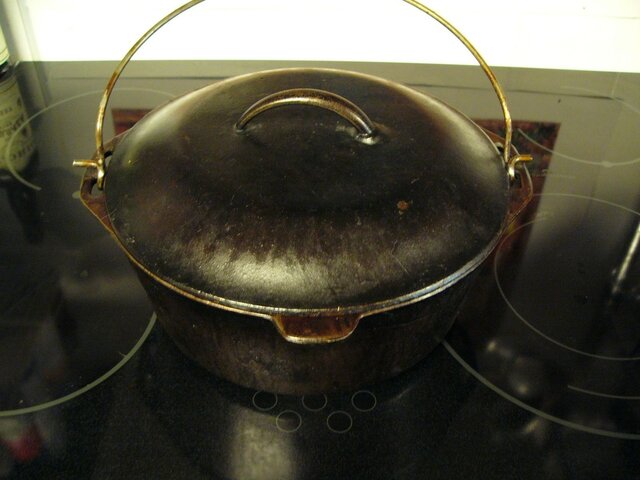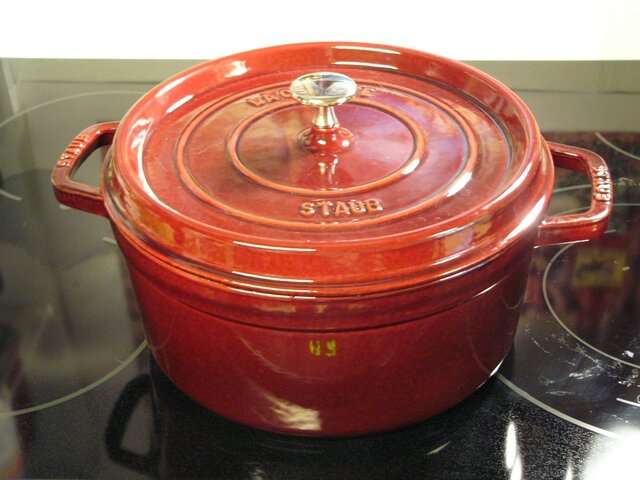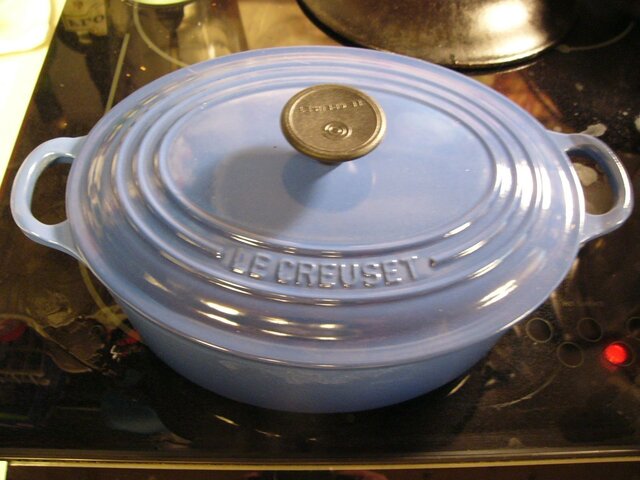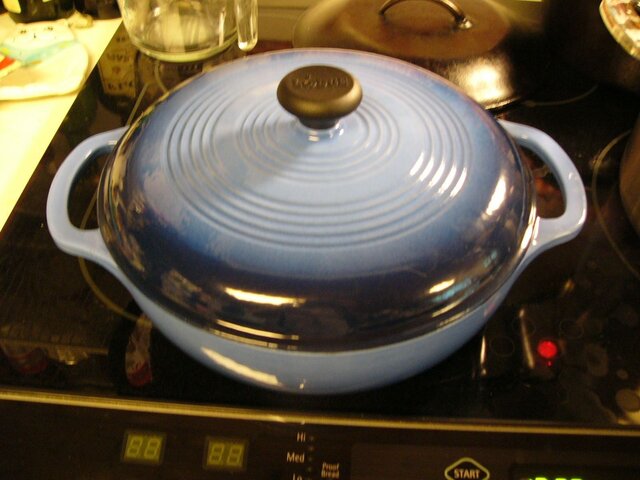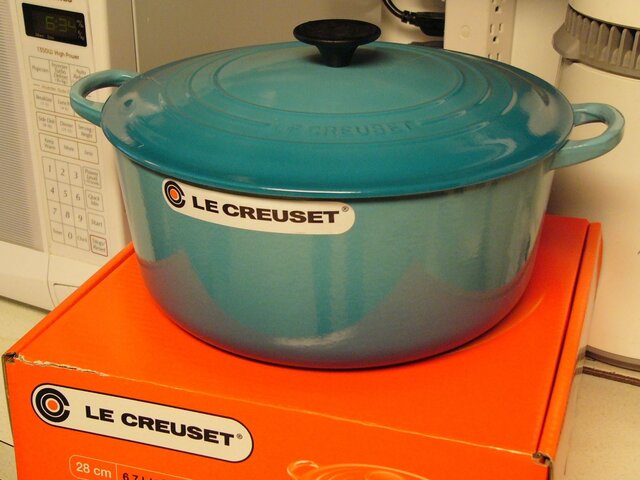Some limited experience here, all from scouts. Couple of thoughts:
1) Any new oven has to be seasoned before you can cook in it. Plenty of instructions available on line. It amounts to getting any manufacturing oils off the cooking surface and replacing them with edible oils. The well-conditioned oven should have a brownish cast to it, but not from rust !! But failure to provide, then maintain a proper cooking surface will indeed result in a surface that rusts easily in storage. Once cleaned, I use bacon grease for interim conditioning. Spread it on liberally then bake the whole thing in an oven at about 200 deg.F for a couple of hours, then wipe off the residual. I then wrap it in newspapers and store it in a dry area until the next event.
2) Once seasoned, a good way to clean it out is to scrape it with a steel spatula to break out all the chunks, then "scrub" it with balled-up aluminum foil. (Save foil from previous events for this purpose, i.e., recycle!) NEVER use water other than what's called for in a recipe, and as others mentioned, never use soap!
3) Bury it in coals, more or less to develop the temperature and distribution you need for the recipe. I always use real wood vs. charcoal. Pays to have a small fire to the side to provide a continuous supply of coals.
4) There's a special "hook" tool for opening the lid or lifting it by the handle when hot. Get one!
5) There will always be a small (or more!) amount of "Boy Scout pepper" added by the process (ash!) when the lid is opened. Consider it a good source of cellulose (fiber!)...
6) When cooking baked goods like rolls, etc., use an upside-down pie tin to hold the stuff off the bottom, which otherwise will probably burn.
7) Google for recipes. Tons of possibilities. My personal list is limited but I have seen amazing stuff done in competitions, for which Scouts are famous...!
1) Any new oven has to be seasoned before you can cook in it. Plenty of instructions available on line. It amounts to getting any manufacturing oils off the cooking surface and replacing them with edible oils. The well-conditioned oven should have a brownish cast to it, but not from rust !! But failure to provide, then maintain a proper cooking surface will indeed result in a surface that rusts easily in storage. Once cleaned, I use bacon grease for interim conditioning. Spread it on liberally then bake the whole thing in an oven at about 200 deg.F for a couple of hours, then wipe off the residual. I then wrap it in newspapers and store it in a dry area until the next event.
2) Once seasoned, a good way to clean it out is to scrape it with a steel spatula to break out all the chunks, then "scrub" it with balled-up aluminum foil. (Save foil from previous events for this purpose, i.e., recycle!) NEVER use water other than what's called for in a recipe, and as others mentioned, never use soap!
3) Bury it in coals, more or less to develop the temperature and distribution you need for the recipe. I always use real wood vs. charcoal. Pays to have a small fire to the side to provide a continuous supply of coals.
4) There's a special "hook" tool for opening the lid or lifting it by the handle when hot. Get one!
5) There will always be a small (or more!) amount of "Boy Scout pepper" added by the process (ash!) when the lid is opened. Consider it a good source of cellulose (fiber!)...
6) When cooking baked goods like rolls, etc., use an upside-down pie tin to hold the stuff off the bottom, which otherwise will probably burn.
7) Google for recipes. Tons of possibilities. My personal list is limited but I have seen amazing stuff done in competitions, for which Scouts are famous...!



